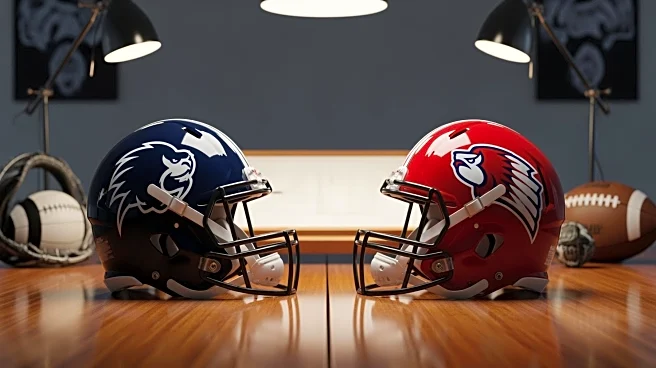What's Happening?
The Unrivaled league has finalized its rosters for the second season after conducting an internal draft. Two new teams, the Breeze and Hive, were awarded the top picks. The draft involved players being
divided into six position-based pods, with selections alternating among eight teams. The Breeze secured the No. 1 pick and selected notable players such as Paige Bueckers and Rickea Jackson. The Hive followed with selections including Kelsey Mitchell and Sonia Citron. Playoff teams from the previous season were allowed to protect two players, while non-playoff teams protected one, affecting their draft selections. The reigning champion Rose returns several players, including Chelsea Gray and Kahleah Copper. The games are set to begin on January 5, primarily in Miami, with a tour stop in Philadelphia scheduled for January 30.
Why It's Important?
The setting of rosters for Unrivaled's second season marks a significant development in the league's growth and competitive structure. By introducing new teams and allowing existing teams to protect key players, the league aims to maintain competitive balance while fostering talent development. This draft process and the subsequent games could impact the visibility and popularity of women's basketball, potentially attracting more fans and sponsors. The inclusion of a development pool further emphasizes the league's commitment to nurturing emerging talent, which could have long-term benefits for the sport.
What's Next?
With the rosters set, teams will begin preparations for the upcoming season, focusing on training and strategy development. The league's inaugural tour stop in Philadelphia presents an opportunity to expand its fan base and increase engagement. Stakeholders, including team management and sponsors, will likely monitor the season's progress to assess the league's growth and potential for future expansion. The performance of new and returning players will be crucial in determining the league's competitive dynamics.
Beyond the Headlines
The Unrivaled league's approach to player selection and team formation highlights broader trends in sports management, such as the emphasis on player protection and development. This strategy may influence other leagues to adopt similar practices, promoting sustainability and growth in women's sports. Additionally, the league's expansion and tour stops could contribute to cultural shifts, encouraging greater acceptance and support for women's professional sports.









